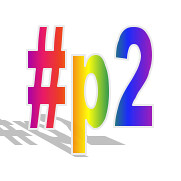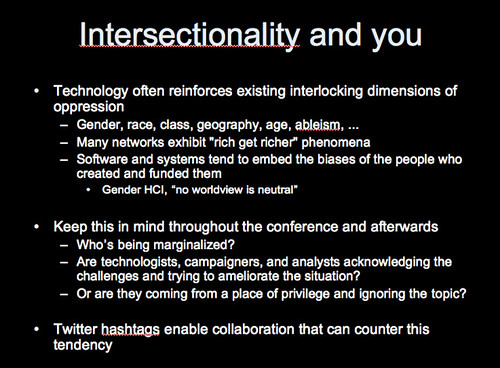Diversity and technology conferences, part 1: the Government 2.0 Expo
We received 189 valid proposals for talks at Expo Showcase. A few people, men and women, submitted two proposals, but the vast majority submitted just one. Of these 189, only 41 (or 22% of the total) were from women, with 147 proposals submitted by men. I have no reason in particular to offer for this. Perhaps women would like to comment on this blog about why a two month open call for proposals for anyone with a good idea for a five minute talk about Government 2.0 was dominated by 78% men.
— Mark Drapeau’s Government 2.0 Expo: Women by the Numbers
The women in technology community has been doing a great job of highlighting lack of diversity in conference speakers, using mechanisms like the #diversityfail Twitter hashtag and act.ly.  Mark’s post provides some interesting data on how an O’Reilly conference he’s co-chairing wound up with more than two-thirds of the presenters being male. While I’m not actually a woman, I’d nonetheless like to take him up on his invitation for discussion about how the submission process became so male-dominated.





